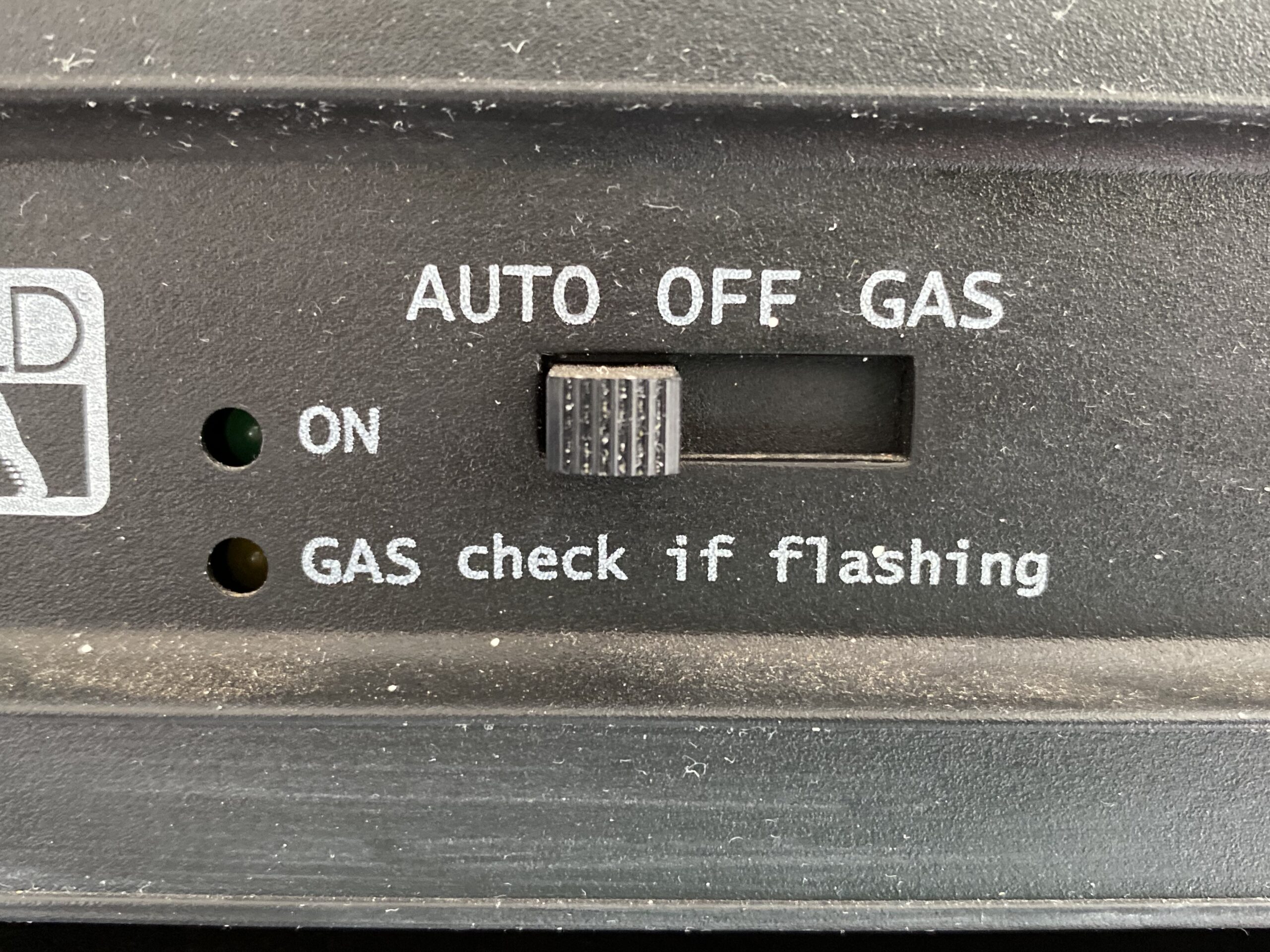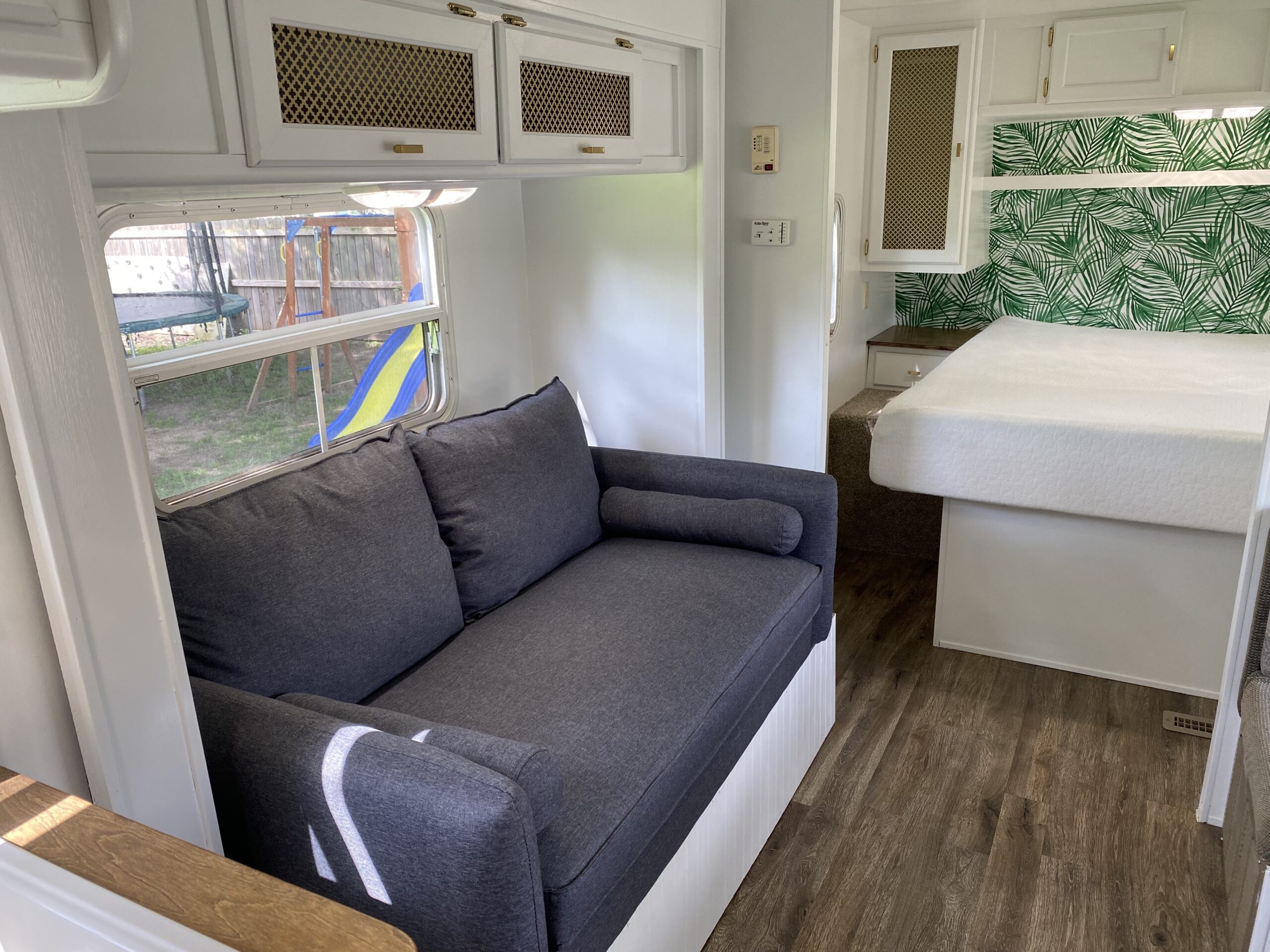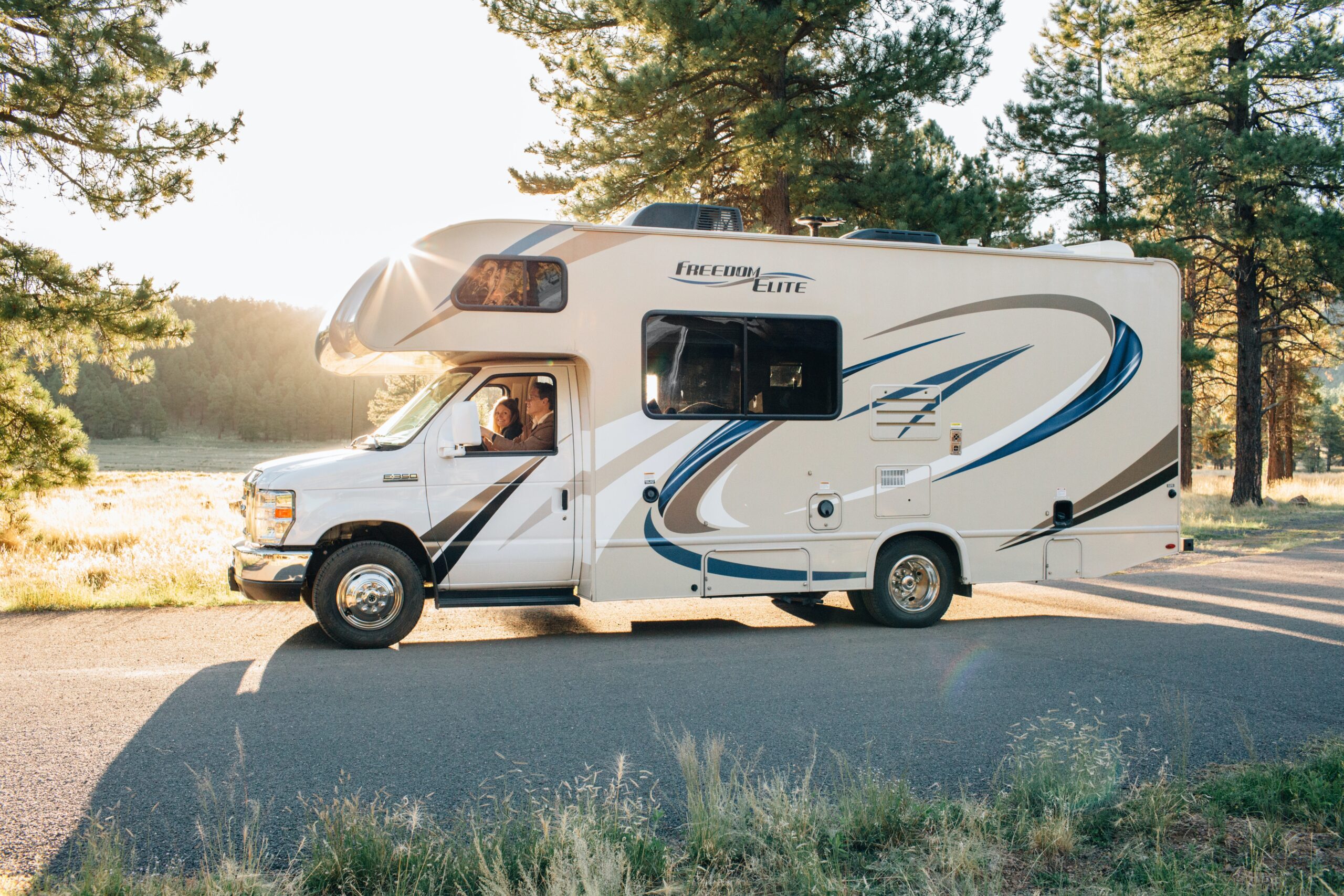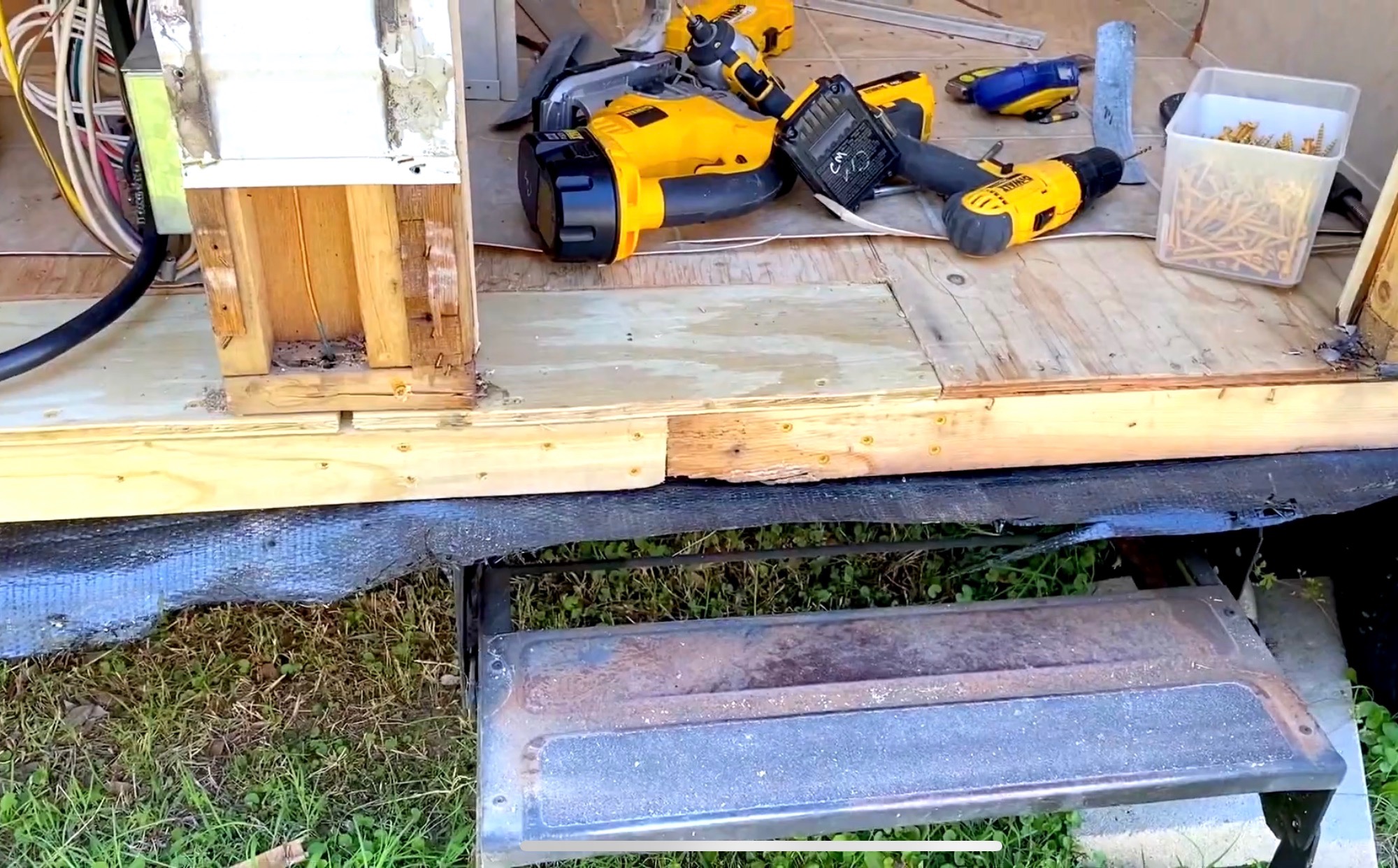Refrigerators are a major component of most households. This is also very true for your RV or camper-van. Because of their importance, it’s great to know how they keep your food fresh and beverages crisp.
Contrary to popular belief, RV refrigerators actually function differently than your household fridge. They stay cold using a process called absorption refrigeration.
Absorption Refrigeration
Absorption refrigerators are unlike household fridges because they do not use a compressor or any other moving parts. Instead, they rely on a combination of heat, hydrogen gas, ammonia, and water to stay cold.
In short, heat is absorbed from the interior of the refrigerator. The theory is that where there is an absence of heat, there is cold. Now, for a bit more detail…
A flame is used to heat a solution of water and ammonia located in the boiler. As the solution boils, the ammonia begins to percolate and evaporate.
The ammonia then moves onto the condenser where it dissipates its heat and returns to liquid form. The liquid ammonia then trickles into an evaporator, or freezing unit, where it’s combined with the hydrogen gas.
This chemical combination results in vigorous evaporation which then results in cooling. Now the gas enters a return pipe to rejoin the water and restarts the process.
Check out this video for a really helpful visual.
Ultimately, it’s the condensation and evaporation from this process that lowers the temperature and keeps the fridge cool.
How is this Process Powered?

RV refrigerators can be powered by electricity or gas. When using a power cord or generator (aka AC power), the flame required for the absorption process is produced by an element.
When electricity is not available, the refrigeration process relies on gas (aka LP gas) to light a flame and begin the absorption process.
Most modern RVs are able to switch between using electricity or gas automatically. This keeps your refrigerator running cool no matter the circumstance.
However, it is also possible to manually select either electricity or gas to run your refrigerator.
Oh No, Broken Fridge!
At some point, most things get old and break. That’s just life sometimes. But have no fear, there is always a solution!
If your RV fridge is not operating correctly, you probably have an issue with one of three simple items: the thermistor, the control board or the heating element.
Thermistor

The thermister is the temperature sensor for your fridge. If this isn’t working correctly, your fridge will not be able to hold the appropriate temperature. It may get too warm, or too cold and freeze up.
Control Board
The control board, is well, what controls the fridge. If you’ve got bad wiring or low voltage from your control board, then your fridge is bound to have issues.
Heating Element
Lastly is the heating element. If your fridge won’t create a flame, then the absorption process can never begin. The fix could be as simple as cleaning the flue where your element is located.
Time for a new one?

Perhaps your fridge is beyond repair. Or maybe it’s just time for an upgrade. Here are some things to think about when shopping for a new one.
Items to Consider When Shopping for a New Fridge
Size
The size of your refrigerator is normally dictated by the available space in your rig. If you are replacing an old one, you’ll need to choose the same exact size.
If you’re customizing your camper kitchen from the start, then you’ll have more freedom. In this case, refrigerator-size will most likely match your personal expectations for food storage.
Capacity

All RV refrigerators have different carrying capacities for food and beverages. Even among fridges that are the same size!
Find out what you need for your lifestyle and make your choice based on that.
Extras
RV refrigerators come in all shapes and sizes. As such, some are more advanced than others.
Ice makers, a two-door system or sliding-door system are just a few examples of different options that’s fridges can come with.
Finding the right fridge for your and your vehicle will depend on the different bells and whistles you think you might need.
Price
In this day and age, high-quality RV refrigerators can get silly expensive. Depending on the size and quality, RV fridges can cost up to ~$3,000.
Why such the steep cost, you ask? Well, the cost of materials is higher. The construction of RV refrigerators is much more robust than household fridges.
This is to make sure that the fridge can withstand the rough and wide-open road. However, there are some affordable options out there.
The Powerhouses of RV Refrigeration

In general, there are two top-brands in the RV refrigeration world: Norcold and Dometic.
Norcold has been a top contender for over 60 years. They are “a company built on innovation, quality and customer service”. They pride themselves on your growth from humble beginnings to industry leadership.
Dometic has also taken the RV fridge industry by storm. They have evolved from just making refrigerators to electronic coolers, and other camping equipment like tables, chairs, tents, and awnings.
Sounds like an easy one-stop-shop to me!
Advice from Seasoned RVers & Campers – 11 tips!
Whether you’re a new owner to your RV refrigerator or well experienced road tripper, there is always something new to learn. Here are some golden nuggets of advice:
- Turn your fridge on the night before your trip: Prepping your fridge before your trip will make sure that your food doesn’t spoil on the way to your destination.
- Only put frozen or room temperature foods or beverages in your fridge: Try not to put heated items in the fridge. That will increase the interior temp.
- Leave space between items: Air flow is a good thing. If you can afford to, space out your items and try not to pack the fridge to the brim.
- Try not to open your fridge too much: We all do it. We get hungry or even slightly bored and we check what’s in the fridge. Try to avoid this to allow your refrigerator to maintain its temperature.
- Invest in a thermometer: Having a small electronic thermometer in your fridge is helpful to double check the temp at a glance.
- Defrost your freezer every now and again: Frost build up can reduce capacity. In between trips, turn your fridge off completely and let it defrost. Similarly, let your fridge run everyone once in a while even when you’re not traveling.
- Make sure your rig is level: Parking in a level location will guarantee your refrigerator works properly.
- If you can, park the vented side of your rig in the shade: This isn’t always possible, but the more shade the better. If the back side of your fridge stays in the shade, it won’t have to work as hard to stay cold.
- Double check those seals: Make sure your refrigerator’s doors are closing and sealing properly.
- Refrigerator bars: Installing bars in your fridge will help keep food secure even on the bumpiest roads.
- Routine maintenance: Check the vents, clean the flue, and test the wiring. A little maintenance goes a long way to avoid problems on the road.
No More Cooler Fiascos
RV refrigerators are game changers. They help lengthen the longevity of your food during your long trip. And they keep your drinks cold and extra refreshing for hot days.
All without the hassle of coolers and bags of ice! No more buying over-priced ice at the camp-store or soggy food in the bottom of your cooler.
There is nothing better than a “home” cooked meal while camping. Or cracking a cold one after a long day of adventure at your destination. Make sure your fridge is ready for the next adventure!






